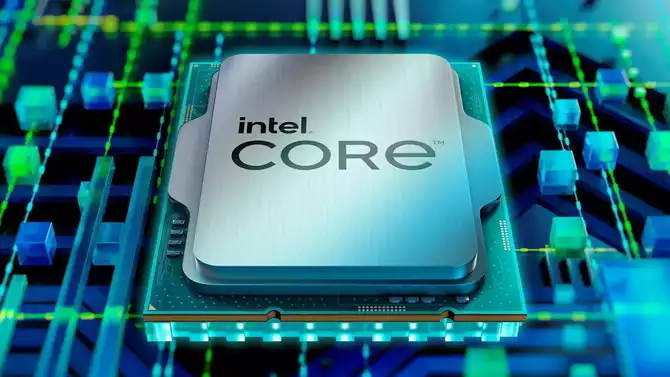We recently reported that Intel's Raptor Lake Refresh CPUs were expected to launch in October, and while the Raptor Lake Refresh CPUs have so far remained just a rumor, Intel's official social media accounts in China have confirmed their existence
Intel's official social media accounts in China seem to have confirmed its existence.
Intel's Bilibili account (via Tom's Hardware) shared a post detailing Intel's plans for its next-generation mobile and desktop processors, including Raptor Lake Refresh and Meteor Lake.
The post confirms that Raptor Lake Refresh will appear in mobile PCs with both low-voltage U-series and higher-performance HX-series CPUs, as well as S-series desktop chips.
Another widely held expectation was also confirmed, that with the exception of the U-series mobile chips, the chips will be named "Intel Core 1st generation processors" and branded as the 14th generation.
Something may be lost in translation, but what can be said is that the new 14th generation chips will be the last before Intel switches completely to a new branding regime.
As explained last week, Intel will ditch the entire "Core iX" and simply adopt Core 3, Core 5, Core 7, and Core 9. Intel will also add a new prefix, "Ultra". So we can expect chips branded Ultra Core 7, for example.
The branding shift will also eliminate generation-specific messaging. In other words, there will be no "15th generation" Core. Instead, the generation will be retained in the full product name, rather than being referred to separately. In other words, there will likely be an "Ultra Core 9 15900K" or something close to it, but it will likely revert to a single generation again.
Of course, what we really want is a genuinely new CPU for desktops. Intel's next "Meteor Lake" CPUs, which should appear before the end of the year, will almost certainly be dedicated to mobile (and probably always have been). And these Raptor Lake refreshed CPUs will probably only add a little clock speed on top of the existing 13th generation CPUs, but not much else.
So Intel will have to wait for Arrow Lake before it can make any significant progress on the desktop. Currently, it is believed that desktop Arrow Lake CPU cores will be manufactured on TSMC's 3nm node, while mobile Arrow Lake chips will be manufactured on Intel's own new 20A node.
All of this is expected to be quite confusing, but in any case, rumors suggest that Arrow Lake will offer a fairly large step forward in performance per core, perhaps as much as a 25% increase in IPC compared to traditional Raptor Lake chips. Factor in the potential for higher clock speeds, and Arrow Lake may be quite nippy.
Arrow Lake Arrow Lake should appear next year. However, when next year remains an open question, especially for something like the complex new CPUs that both TSMC and Intel may produce.


Comments